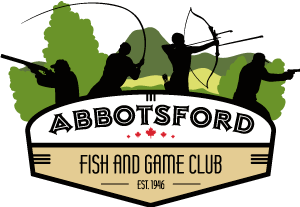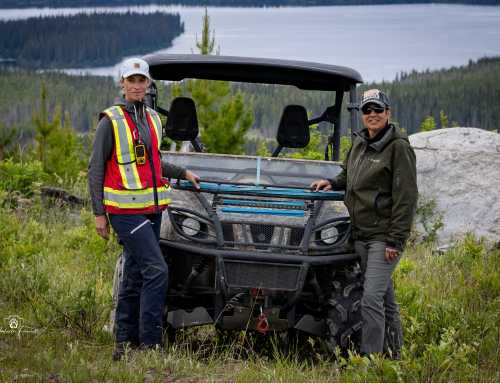News Release from BCWF
December 10th, 2014
Sweeping changes to B.C.’s wildlife allocations could result in 5,000 fewer hunting permits going to residents
Sweeping changes to B.C.’s Wildlife Allocation Policy proposed by the Guide-Outfitters Association of B.C. would dramatically reduce residents’ access to wild game and increase the number of permits sold to foreign big game trophy hunters, according to the B.C. Wildlife Federation (BCWF). This proposed change could result in 5,000 fewer hunting permits going to B.C. residents.
Most jurisdictions across North America give foreign hunters 5-10 percent of the harvestable surplus of wildlife. The changes proposed by the Guide-Outfitters Association of B.C., which represents 210 outfitters who have exclusive rights to guide trophy hunters, would give foreign hunters up to 40 percent of specific game species such as mountain sheep, goat and bear, and up to 25 percent of moose and elk.
In 2007 a new Wildlife Allocation Policy was established in B.C. in an attempt to fairly determine the number of hunting permits allocated, which gave foreign hunters the best share of the available hunting permits. Even then, the Guide Outfitters Association of B.C. started vigorously lobbying the government to amend or scrap the new wildlife policy.
“Proposed changes to the Wildlife Allocation Policy are inconsistent with standard practices in otherjurisdictions across Canada and in the United States,” said George Wilson, President of the B.C. Wildlife Federation, which represents 45,000 conservationists. “There is no justification for these changes and they are not supported by B.C.’s resident hunters.”
Over the last 10 years, the number of B.C. hunters has grown by 20 percent, increasing from 84,000 to over 102,000. Over the same period, the number of foreign trophy hunters coming to B.C. has dropped from 6,500 to 4,500, a decline of 30 percent.
Hunting has become increasingly popular in B.C. as more families shyaway from industrially produced meats in favour of organic wild game. This sustainable food movement is particularly popular in northern communities, central B.C. and even the Lower Mainland where people are depending on hunting to fill their freezers and feed their families.
B.C. resident hunters spend over $230 million a year in local communities on hunting related activities and contribute $9 million a year towards conservation work through license fees. Resident hunters also contribute through donations to conservation organizations such as The Nature Trust, and Ducks Unlimited as well as volunteer for conservation activities. B.C. Wildlife Federation members alone dedicate more than 300,000 hours annually to fish, wildlife and habitat conservation projects across the province.
Moose is the most sought after species by B.C.’s resident hunters. In many areas, demand exceeds supply and hunters are placed on a Limited Entry Hunt (LEH) lottery to ensure sustainability. Approximately 70,000 BC hunters apply for 13,000 LEH permits each year, meaning only 1 in 5 hunters get to hunt moose annually. Foreign hunters do not need to apply for a LEH permit, and can hunt annually, taking moose from approximately 3,000 B.C. hunters each year. The proposed changes would see even more British Columbians go without an opportunity to hunt moose.
“B.C. residents who depend on hunting to help sustain their families should be supported by provincial government policy,” said Jesse Zeman, a BCWF director, who hunts with his whole family. “The overriding priority for all hunters is conservation, ensuring there is enough game available for First Nations, and then fulfilling the hunting needs of B.C. families. Any changes to the Wildlife Allocation Policyshould meet the needs of the majority of British Columbians who enjoy the outdoors, spend time with friends and family, and hunt for food.”
Over the past two decades, there has been a steady erosion of hunting permits available to B.C. resident hunters in favour of foreign hunters. For example, non-resident hunting permits for moose in the Kootenay Region have gone from 6 percent in 1991 to 21 percent in 2012, leaving hundreds of Kootenay residents without the opportunity to hunt moose.
The B.C. Wildlife Federation is calling on the BC government to fairlylegislate wildlife allocations. The organization does not support giving away more than 10 percent for moose and elk, and 25 percent of mountain goat, sheep, and bears to foreign trophy hunters. Ironically, this gives non-resident hunters the best deal in North America. Several jurisdictions across North America have already set wildlife allocation in law. Saskatchewan limits non-resident moose hunters to 4 percent of the harvestable surplus. Alberta sets non-resident allocations between 2-7percent with a maximum of 10 percent. Washington State has limited non-resident wildlife allocations to approximately 5 percent.
“Resident hunters firmly believe any policy changes should reflect the best interests of the majority of British Columbians who depend on hunting as a sustainable, healthy food source,” said BCWF President George Wilson. “Our organization is committed to working with the government to protect wildlife and ensure equitable distribution of this resource.”
BCWF BC Resident Hunter Fact Sheet [PDF]
This document contains figures and statistics that show the significant economic impacts of resident hunting in B.C.
-30-
The BCWF is British Columbia’s largest and oldest conservation organization with over 45,000 members passionately committed to protecting, enhancing and promoting the wise use of the environment for the benefit of present and future generations. Visit www.bcwf.bc.ca for more information.
For more information on this issue, contact Jesse Zeman, co-Chair, BCWF Wildlife & Allocations Committee, at 250-878-3799 or essezeman@gmail.com
For more information on the province’s Wildlife Harvest Allocation Policy, visit http://www.env.gov.bc.ca/fw/wildlife/harvest_alloc/

